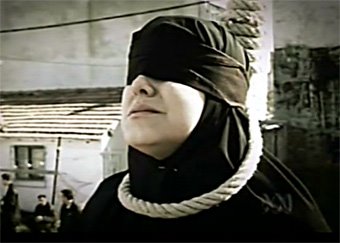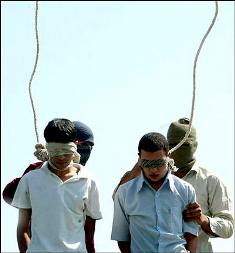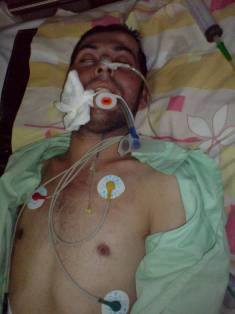
by Khadija Ismaylova
BAKU -- Vedud Asadi is well-known for his work promoting the cultural and language rights of Iran's Azeri minority, so it's little surprise that he celebrated his wedding with a nod to his ethnic heritage.
Guests sang folk songs and danced traditional dances -- but the flag may have been the icing on the cake for Iranian authorities who came to arrest him two weeks after the event, according to his sister, Sumayya Asadi.
"I think it was because we put the image of the Azerbaijan's flag on the wedding cake," she says. "We sang only Azerbaijani songs, there were no Persian songs. We all were speaking Turkic [Azeri], [and there was] Turkic dancing. There is no need for Persian in a Turkic wedding. We used our flag -- we don't need others' flags. I think Vedud was arrested for this, because the first thing they asked for when they initiated the search was the wedding film.
"Vedud Asadi's bride, Zahra Purasad, says the secret police who arrived at the newlyweds' flat in Rasht on the evening of July 22 did not give any reasons for her husband's arrest. "I asked, but they did not say anything," Purasad tells RFE/RL's Azerbaijani Service.
The Iranian authorities were already familiar with Asadi's activism. In 2006, the former chairman of the Islamic Students Union at northwestern Iran's Ardebil University was arrested for participating in a protest against cartoons that depicted Azeris as cockroaches.
His family says he spent about 3 1/2 months in prison without being charged following that arrest, and they now fear he will be imprisoned again. His wife knows only that he was taken to a local court on July 24, but has no information about the outcome in court or his current whereabouts.
The ethnic-Azeri minority makes up 25-33 percent of Iran's population. While the Iranian Constitution provides language and cultural rights for the country's minorities, the regime has banned the teaching of the Azeri language in schools, and harassed and jailed activists like Asadi.
Sumayya Asadi says the officers who arrested her brother seized his Azeri-language books, material on the history of Azeris, CDs, and his computer.
Iranian authorities often cite the promotion of "pan-Turkism" as the reason for detaining ethnic Azeris. But Sumayya Asadi says her brother is no separatist, he simply believes that his people's cultural and linguistic rights are worth fighting for.
She says that if she is Azeri, she has the right to speak Azeri. "I should not have to speak Persian.... If there are 35 million Turks [Azeris] in the country, shouldn't these 35 million have the right to speak, write, and communicate in their own language?"
As for Asadi's wife, when asked what she feels about the arrest of her husband just two weeks after the wedding, she says she has no regrets for their actions at their wedding.
"He was arrested for his nation, he did not do anything bad," she says. "Not for stealing, not for drinking alcohol or immoral behavior -- for his nation only. I am proud of him."
























































